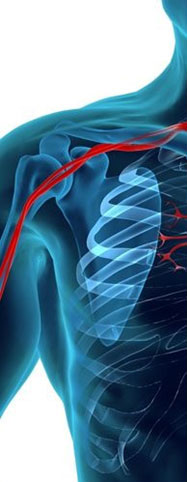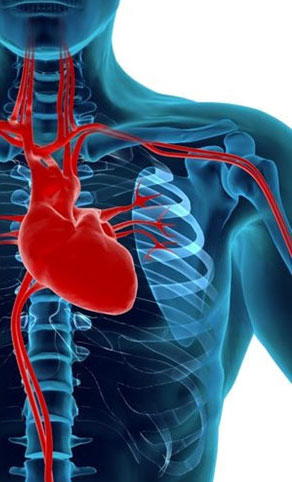 |
Interventional cardiology refers to various non-surgical
procedures for treating cardiovascular disease.
Interventional cardiologists use catheters – thin, flexible
tubes – to get inside blood vessels for diagnostic tests or
to repair damaged vessels or other heart structures, often
avoiding the need for surgery.
What types of heart disease are treated with
interventional cardiology?
Interventional cardiologists treat narrowed arteries and
weakened heart valves – often caused by coronary artery
disease, heart valve disease, or peripheral vascular
disease.
• Coronary artery disease is the narrowing of the
coronary arteries, the tubes which supply the heart muscle
with blood and oxygen. This narrowing of the arteries is
caused by atherosclerosis – the buildup of fatty deposits,
cholesterol, calcium, and plaque on the inner surface of the
arteries. Atherosclerosis restricts blood flow to the heart,
which can lead to heart attack or other heart problems.
Symptoms may include angina (intermittent chest pain),
shortness of breath, sweating, nausea, and/or weakness.
|
 |
|
• Heart Valve Disease involves heart valves
that are not working correctly to regulate the flow
of blood through the heart chambers. This can arise
from birth defects or through damage by rheumatic
fever, bacterial infection, or heart attacks. Valves
also can degenerate with the normal aging process.
To compensate, your heart must pump harder, and may
be unable to supply adequate blood circulation to
the rest of your body. Two common forms of heart
valve disease are aortic valve stenosis and mitral
valve regurgitation. Symptoms may include shortness
of breath, chest pain, swelling of the ankles and
legs, fatigue, dizziness, and/or fainting.
• Peripheral Vascular Disease involves the
other arteries that run throughout your body. Like
the coronary arteries in your heart, these vessels
can become clogged and hardened through
atherosclerosis, and can increase your risk for high
blood pressure, heart attack, and stroke, or limb
loss. Symptoms may also include pain in the leg
muscles (particularly calves and thighs) and/or
severe aching pain in your toes or feet at night.
Partner
BIOTRONIK
Website
www.biotronik.com
For more information and product availability in
your Region, please call us or send email to:
info@biolavida.com |

